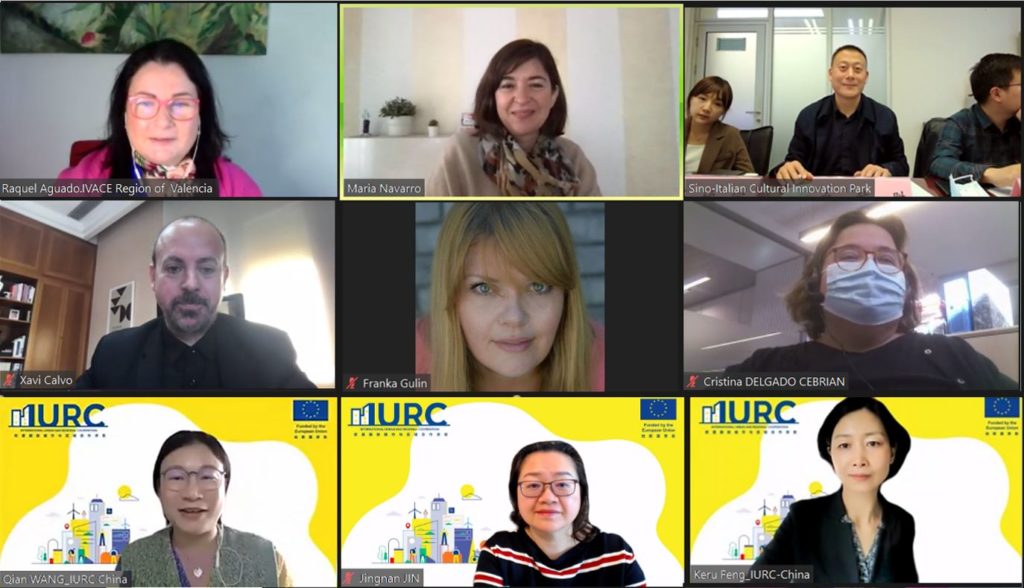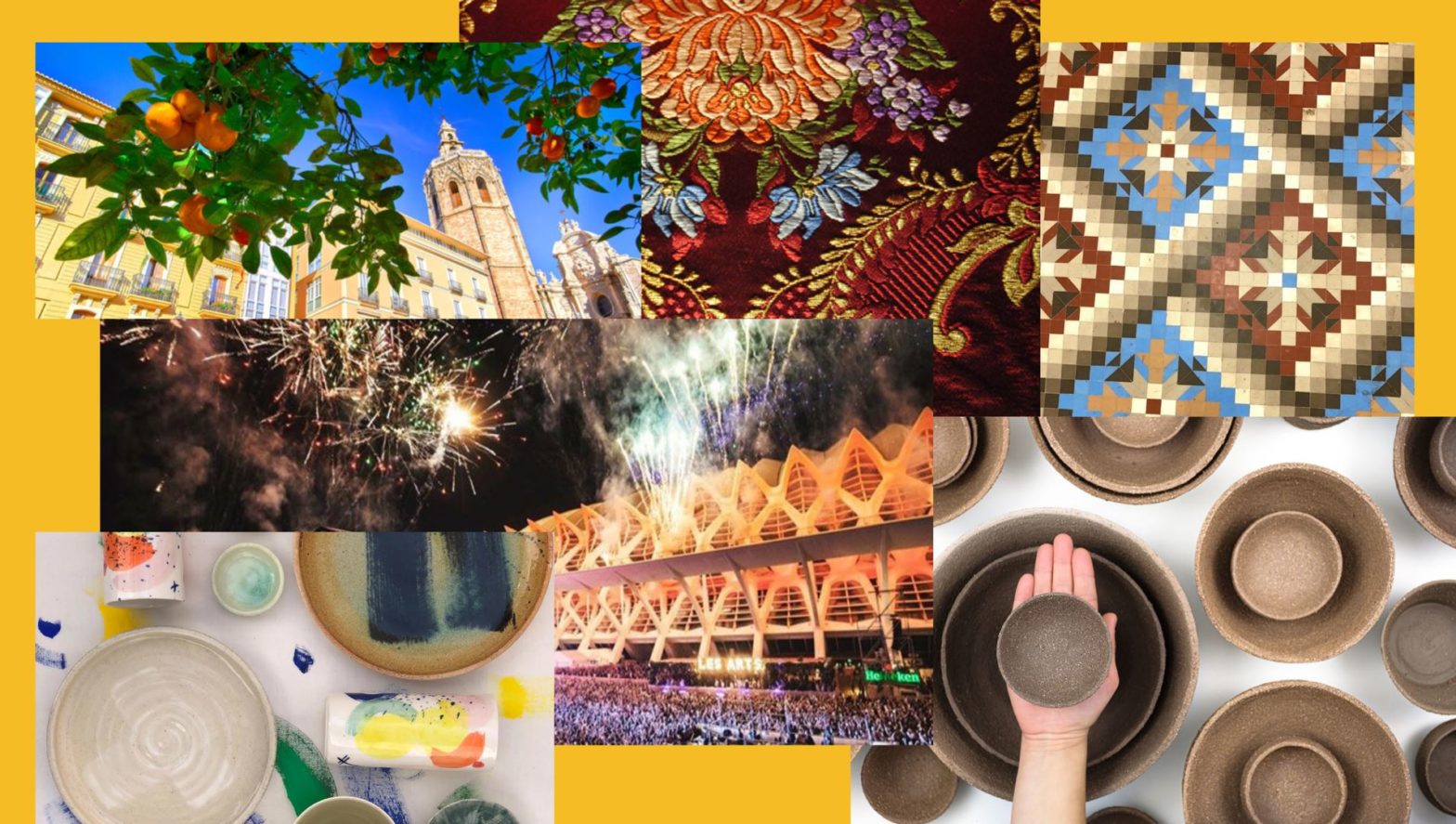Cultural and creative industries are crucial in terms of their footprint on economic growth and employment. They drive innovation and contribute to positive social impact. They are among the hardest hit by COVID, meanwhile, among the key sectors for recovery. In these circumstances, on 7 April 2022, the delegates from Region Valencia and Chengdu met and discussed the latest evidence in the region Valencia and Chengdu on effective ways to adapt creativity and design to enhance the competitiveness and profitability of cities, highlighting design as a bridge between society and the environment and as a driving factor in the industry transition.
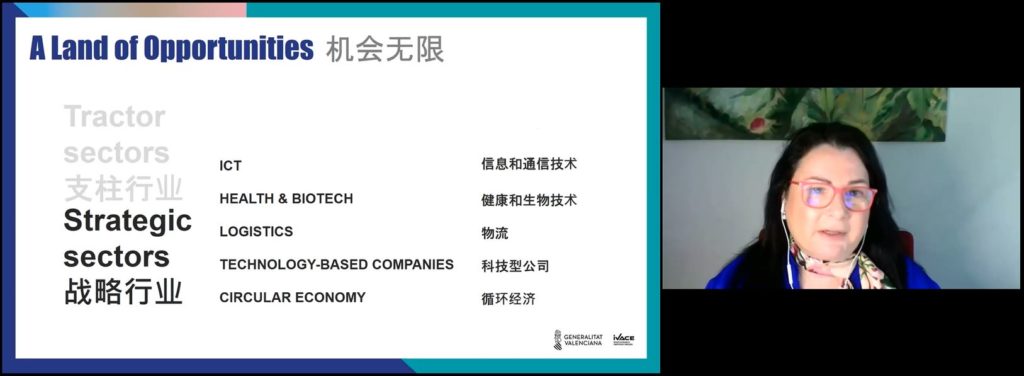
Ms. Raquel Aguado Muñoz, Head of the International Specialisation Service in Valencian Institute of Business Competitiveness (IVACE) introduced the socio-economic development in the region Valencia and strategic cooperation with Sichuan province.
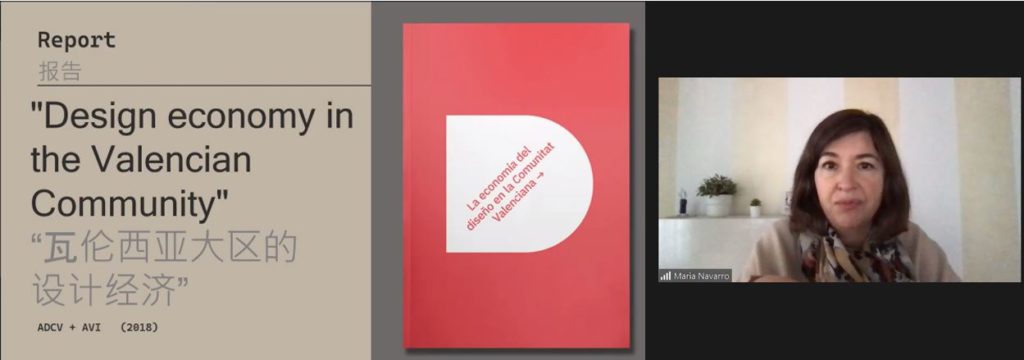
Ms. María Navarro, Managing Director of the Association of Designers in Valencia gave a presentation on the roles of design and creativity to enhance the competitiveness and profitability of industries in Valencia community.
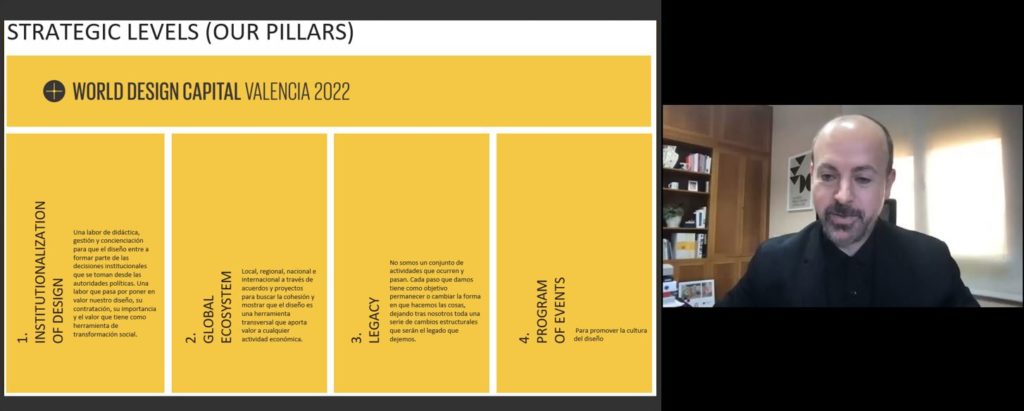
Mr. Xavi Calvo, Director-General of Valencia World Design Capital 2022 talked about the strategies and activities for the implementation of Valencia World Design Capital 2022.
 Mr. LU Qiansheng, Deputy Director of Culture, Creativity and Convention Bureau in Chengdu Tianfu New Area and the Deputy Head of the Management Committee of Tianfu Digital, Cultural and Creative City, gave an overview of the cultural and creative industry in Chengdu and proposed cooperation areas, particularly in Tianfu Digital, Cultural and Creative City.
Mr. LU Qiansheng, Deputy Director of Culture, Creativity and Convention Bureau in Chengdu Tianfu New Area and the Deputy Head of the Management Committee of Tianfu Digital, Cultural and Creative City, gave an overview of the cultural and creative industry in Chengdu and proposed cooperation areas, particularly in Tianfu Digital, Cultural and Creative City.
In the working session, the delegates from Valencia Region and Chengdu shared their development strategies for cultural and creative sectors, and committed to working together to:
- Upscale the innovation capacity within Cultural and Creative City in Chengdu Tianfu New Area and support innovation in cross-over sectors including visual media, creative design, digital creativity, and cultural-led rural regeneration.
- Address digitalisation in design and creativity.
- Disseminate, adopt, and adapt best practices in cultural and creative regional ecosystem.
- Integrate culture and creativity into broader cross-regional cooperation, etc. Agrifood system, smart tourism, circular economy and sustainability.
Both sides agreed to consolidate the result of this working session and meet again in a month with concrete cooperation proposals in the cultural and creative sectors.
